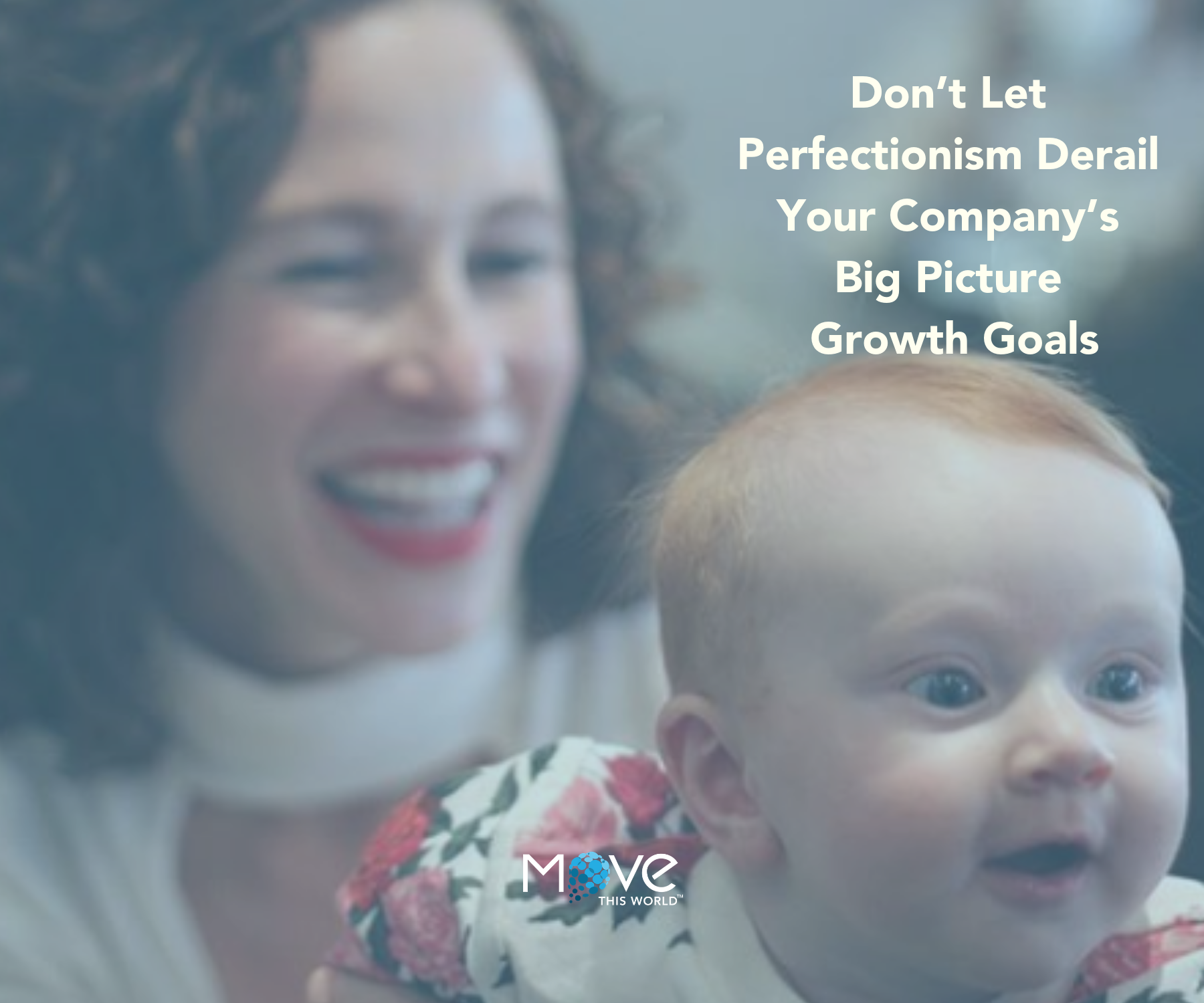
Is there anything in your life that absolutely drives you up a wall?
For me, it used to be coming home to a sink full of dirty dishes. I couldn’t go to bed without knowing the sink was completely clean. If it wasn’t, you’d find me early in the morning making sure it was done before I left for work. Ultimately, this became a source of my frustration. Eventually I had to ask,”Why are you torturing yourself with the sink?”
In the last few years, I’ve made several major transitions in my life. Two years ago, we completely changed direction as a company. About one year ago, I became a first time mother. Both of these incredible experiences taught me the importance of letting go.
For six years, Move This World delivered direct service to teachers and students. Today we are a tech company, something I never thought I’d be leading.
I could have stuck with my original vision, which was showing significant results. But a series of exhausting challenges pushed us to the brink of burning out. Ultimately, we took a step back and focused on our big picture objectives: to reach as many students as possible. It was clear we needed to let go of our model and move in a new direction.
Letting go of things that are not serving us is critical to our growth. That lesson really hit home when I became a mother. Suddenly, mess was everywhere. I couldn’t possibly get bogged down by everything that needed cleaning. Instead, I learned to let go.
No matter how hard we try, life does not turn out as we planned or expected. There is no such thing as perfection. We are not supposed to be good at everything. We will not be condemned for dirty dishes or for changing course when the evidence suggests we need to.
In a culture of perfection, failure is feared and errors are an eyesore. They must be covered up before anyone sees them, like dirty dishes by the sink. They are frequently disowned, shifting the blame to something or someone else.
In this environment, people are more focused on fixing mistakes than the big picture goals, which reduces creativity and innovation. Research also shows a link between the unattainable pursuit of perfection and mental health issues like anxiety and depression.
How do we break this cycle? It’s an ongoing process. These days, I either delegate what I am not good at or accept that it will not be done well or perfectly.
I’m learning to accept and be okay with the messiness. I leave the dishes in the sink, so I can make it to dance class on time. I allow my inbox to creep higher so I can spend time on strategic planning and product development.
I’ve accepted that some things just need to get done, even if they aren’t done perfectly, and not doing certain things will actually help me achieve a higher purpose.
This article was originally uploaded to EdWeek Market Briefon November 30th, 2018.

